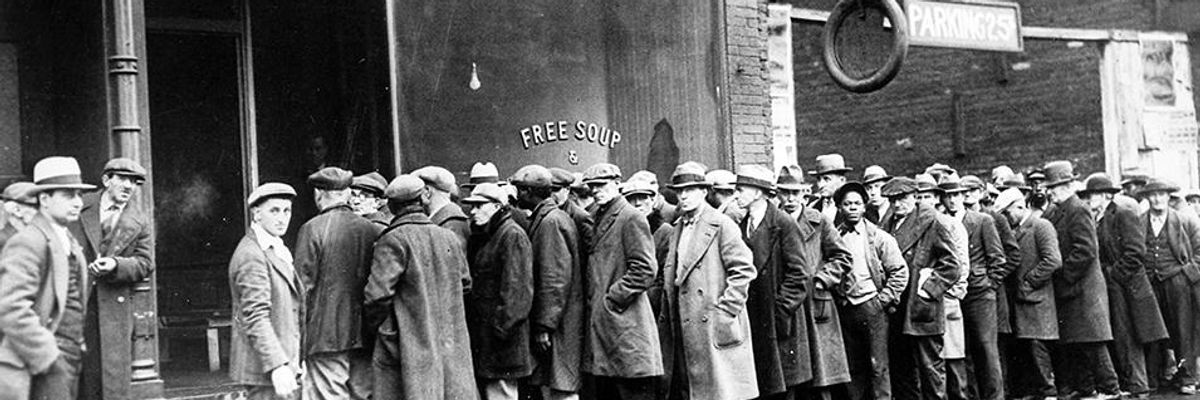Skyrocketing inequality and persistent racial inequities are erasing the American dream for all but the lucky few and hobbling true economic prosperity. Tackling this toxic inequality must be the fight of this decade, and doing so requires breaking up the stranglehold of wealth at the top, growing the largest and most diverse middle class in history, and ensuring that no person or family falls below a standard of living that affords them economic security and dignity.
One crucial tool that would go a long way toward establishing a new baseline of economic security for all is a Federal Job Guarantee: a public option for a good job that pays a living-wage and offers full benefits on projects that address long-neglected community needs and produce public benefits.
Environmental restoration and energy efficiency retrofits to address our climate crisis; sidewalk and street repair, public art, and greening projects to reinvigorate disinvested neighborhoods; and new teachers' aides, child care workers, and eldercare workers to create a care infrastructure are just a few examples of the community-building work that would become possible with a job guarantee.
Guaranteed jobs would address a key failure of our economy: the inability to provide jobs for all even in the best of times. Today, amidst record-low unemployment, millions of Americans -- 11.2 million as of the most recent jobs report -- want full-time work but cannot find it. Some 5.8 million workers are actively job-seeking. Another 4.2 million are working part-time but want more hours. And 1.2 million want a job but have given up looking for one. This is a chronic crisis that disproportionately harms Black, brown, and rural communities.
A job guarantee would also target our epidemic of low-wage, unstable jobs. A recent Brookings Institution analysis revealed that 44 percent of American workers earn less than $18,000 per year. And the latest Fed study found that 17 percent of workers contend with unpredictable, varying schedules. Guaranteed jobs would provide them with a far better option. A Federal Job Guarantee would set a new, higher standard -- not only for wages but also for hours, schedules, and benefits -- that private employers would need to compete against to find workers.
Ensuring that all who want to work can have a good job would transform our economy. No one would need to go through the devastating experience of not finding employment. Workers facing discrimination because of their race, their gender identity, or for having a criminal record would gain economic opportunity.
People stuck in jobs where they are harassed or unsafe would have a viable alternative. Poverty, racial inequity, and working poverty would decline. And, when the next recession hits, workers could take up guaranteed jobs -- maintaining consumer demand and moderating the effects of the downturn for workers and businesses alike.
This vast potential to deliver on economic security, dignity, and stability is why hundreds of individuals, leaders, and organizations working for racial, economic, and environmental justice have signed on to a Jobs for All manifesto calling on policymakers to enact a job guarantee. We hope that the readers of this blog will also sign on.
In putting forth this manifesto, we seek to bolster growing political momentum for a job guarantee. Last fall, Senator Cory Booker and Representatives Bonnie Watson Coleman and Ilhan Omar introduced legislation for a pilot job guarantee program in 15 communities across the country. A job guarantee is also a key feature of the Green New Deal Resolution introduced by Representative Alexandria Ocasio-Cortez with 98 cosponsors. And Senator Bernie Sanders has made a job guarantee a key plank in his economic policy agenda in his bid for the presidency
A job guarantee is also one of the most popular economic policies around. Multiple polls show that a majority of eligible voters support guaranteed jobs--including a good share of Republicans (48 percent according to one poll).
At this time of unprecedented economic and ecological upheaval, it is time for bold policies that move us toward an inclusive and sustainable economy. It is time for a Federal Job Guarantee.




